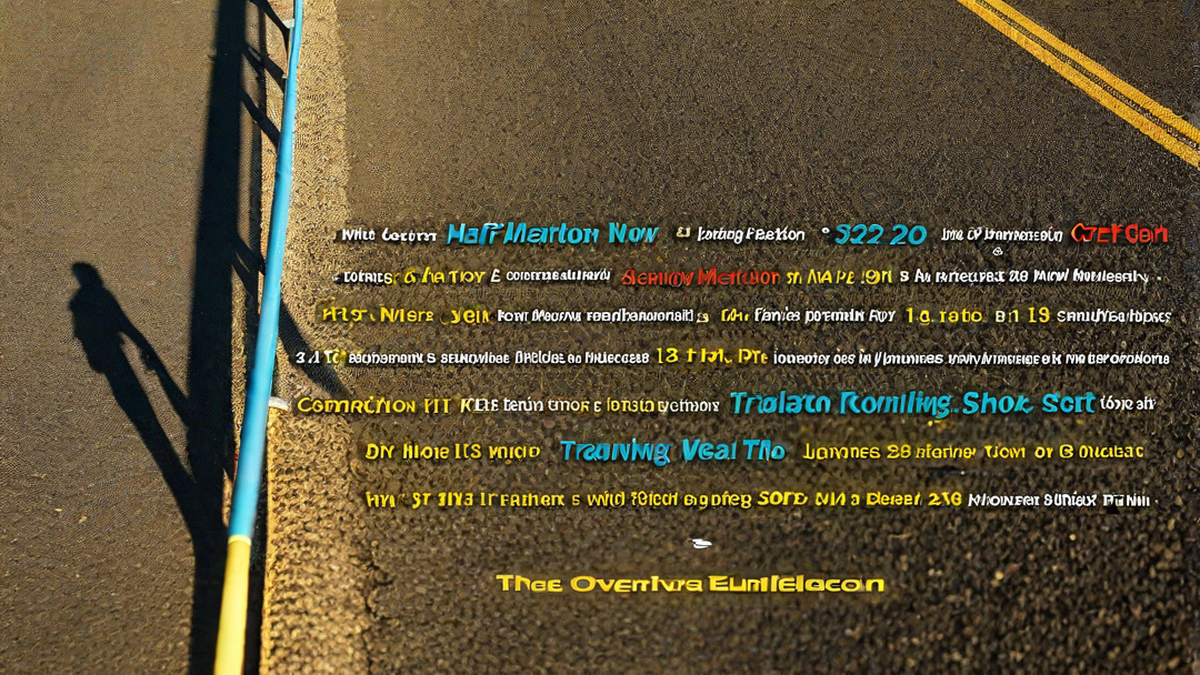Training for a half marathon is an exciting and challenging journey that requires careful planning and dedication. As an avid runner myself, I understand the importance of setting realistic goals and creating a training plan that suits your fitness level and schedule. In this article, I will delve into the details of how many weeks it typically takes to train for a half marathon, providing insights and tips along the way.
The Importance of Training
Before we dive into the specifics of the training timeline, let’s first talk about why training is crucial for a half marathon. Running 13.1 miles is no easy feat, and proper training can help you build endurance, improve your running technique, prevent injuries, and boost your overall fitness level. Training gradually increases your mileage, allowing your body to adapt and become stronger over time.
Determining the Training Timeline
The number of weeks needed to train for a half marathon can vary depending on factors such as your current fitness level, running experience, and the specific race you plan to participate in. However, a common recommendation is to allow yourself at least 12 weeks of training. This timeframe allows for a gradual buildup of mileage and ensures that your body can handle the demands of the race.
Baseline Fitness
If you are already an active individual and regularly participate in other forms of cardio exercise, such as running or cycling, you may need less than 12 weeks to prepare for a half marathon. In this case, you can use your existing fitness level as a starting point and focus on gradually increasing your running distance and intensity over a shorter period of time. Four to eight weeks of dedicated training may be sufficient for those with a solid baseline fitness level.
Beginner Runners
For those who are new to running or have taken a hiatus from physical activity, allowing a longer training period is recommended. Starting with a solid foundation is key to prevent burnout or injuries. If you fall into this category, I suggest giving yourself at least 12 to 16 weeks of training to build up your endurance and gradually increase your mileage.
Creating Your Training Plan
Now that we have determined the recommended training timeframe, let’s discuss how to create a training plan that works for you. Keep in mind that every individual is different, so it’s essential to personalize your plan based on your goals, schedule, and physical abilities.
Here are some key elements to consider when creating your training plan:
- Mileage Buildup: Gradually increase your weekly mileage by no more than 10% each week to prevent overuse injuries. This allows your body to adapt to the increased demands.
- Rest and Recovery: Include rest days in your training schedule to allow your muscles to repair and recover. Overtraining can lead to fatigue and potential injuries.
- Long Runs: Incorporate a weekly long run into your training plan to build endurance and simulate race conditions. Start with a comfortable distance and gradually increase each week.
- Cross-Training: Include other forms of exercise, such as swimming or cycling, to improve overall fitness and prevent boredom. Cross-training can also help reduce the risk of overuse injuries.
- Strength Training: Incorporate strength training exercises to improve muscle strength and prevent imbalances. Focus on exercises that target your legs, core, and upper body.
Listen to Your Body
While it’s important to follow a training plan, it’s equally crucial to listen to your body and adjust your training as needed. Pay attention to any signs of overexertion, such as persistent pain or extreme fatigue, and allow yourself rest days or modify your workouts accordingly. It’s always better to prioritize your long-term health over pushing through unnecessary discomfort.
In Conclusion
Training for a half marathon requires time, dedication, and careful planning. Whether you are an experienced runner or just starting your running journey, allowing yourself at least 12 weeks of training is recommended. Remember to personalize your plan, gradually increase your mileage, incorporate rest days and cross-training, and listen to your body along the way. By following these guidelines, you’ll be well-prepared and confident as you cross that finish line on race day.

